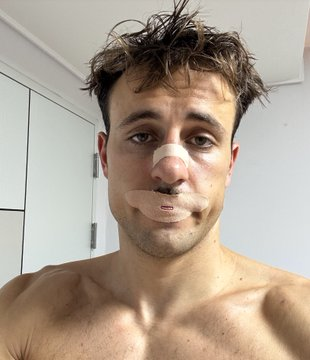New Delhi, 22 May (IANS). Do you follow this trend running on social media that applying tape on the mouth while sleeping helps in breathing through the nose instead of the mouth? Be careful, it can cause serious threat to suffocating.
Asphicks are a condition in which there is a lack of oxygen in the body, which often has difficulty breathing or suffocates.
When the nasal paths are closed, the breath goes from the nose to the mouth. Breathing from the mouth has been linked to sleep disturbances, including conditions ranging from snoring to obstructive sleep apnea, in which breath stops and starts repeatedly during sleep.
However, under a recent trend promoted by social media, some people stop breathing from the mouth and close their mouths at night with tape to treat breathless respiratory diseases.
Many social media influencers and celebrities have recommended mouth tapping, claiming that it may get better sleep, better oral health and anti-aging results.
Dr. Brian Rotanberg, an otolatorist and sleep surgeon at the University of Western, UK, said, “Our research suggests that it is dangerous to shut down the mouth at bedtime, especially for those who probably do not know that they have sleep apnea.”
He said, “These people are inadvertently making their symptoms worse and putting themselves at greater risk of serious health complications like heart disease.”
Researchers used tape or other equipment to evaluate the possible benefits of closing the mouth of a total of 213 patients and evaluated 10 pre -published studies for it.
In a research paper published in the PLOS One magazine, the team said that this practice “can cause existing sleep disorders due to” obstruction of air flow. The respiratory system may cause additional pressure, and patients may increase the risk of suffocation when the nose is obstructed. “
Two out of 10 studies suggested that mild inhibitors could improve a slight improvement. However, other studies found no evidence that applying tape on the mouth can help in the treatment of breathable, sleep disturbances or sleep apnea.
-IANS
AKS/AS
